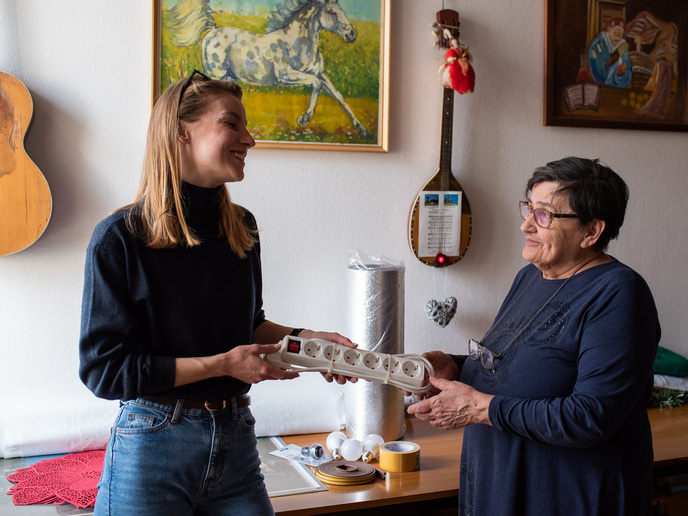Powering together for energy solidarity
Driven by collective citizen actions, energy communities (ECs) are a powerful force in the clean energy transition. By empowering individuals and groups to establish, own and operate local energy supplies, they are restructuring how energy systems work and allowing members to benefit from lower utility bills. Partners involved in the EU-funded CEES project are encouraging ECs to go one step further by supporting the ‘just’ aspect of a clean energy transition. They use the term ‘energy solidarity’ to describe an EC’s commitment to alleviate energy poverty among members and the measures by which they can do it. “CEES is investigating how energy communities can take a more active role in tackling energy vulnerability at a local level,” notes CEES communications coordinator Marilyn Smith. “Energy solidarity emphasises the spirit of community members helping each other and ensuring that vulnerable households do not have to solely rely on state aid or social assistance.”
Practical actions for energy solidarity
The CEES partners have implemented an array of measures to demonstrate energy solidarity, each tailored to the needs and particularities of local contexts. ‘Soft measures’ refer to actions that are cost-effective and easy-to-organise – such as providing warm blankets, blocking chimneys that cause cold draughts or sharing tips on how to optimise energy use. ‘Hard measures’ – such as insulating roofs and walls or changing windows – focus on improving the dwelling’s energy efficiency. “CEES partners have hosted a number of energy cafes to boost understanding of energy usage, complemented by home visits to offer tailored advice for energy savings,” states Smith. “In Portugal, for example, Coopérnico is championing the concept of ‘spending wisely’ over saving energy. CEES acknowledges the fact that many vulnerable households already under consume and many Portuguese households consider being cold at home as normal.” “In Croatia, CEES partner ZEZ raised funds to distribute cozy kits that provide immediate warmth until long-term improvements can be made to the efficiency of people’s homes or heating systems,” adds Smith. “While these devices do not solve the root problem of cold homes, they mitigate its effects and set the stage for further interventions.” On the hard measures side, Les 7 Vents (France) implemented a ‘3 SR’ – shared, supported, self-renovation – approach for home renovations to improve energy efficiency. This helps reduce labour costs by having one professional from the building industry guiding volunteers willing to share the workload. The benefitting family supplies meals and is expected to volunteer on other work sites to ‘return the favour’.
Identifying barriers to energy policies
CEES is also investigating how legal and regulatory frameworks help or hinder energy solidarity, and the financial and non-financial measures ECs need to consider when aiming to help vulnerable households. “While the EU acknowledges the potential of energy communities in tackling energy poverty, CEES partners have encountered several legal and policy hurdles that hinder their efforts,” states Smith. Croatia, for example, does not yet recognise energy poverty in any legislation, so there are no data on who is affected. Also, current law on ECs undermines applying a solidarity approach. Typically, people must pay an initial fee to join an EC. But if a vulnerable household pays this fee in order to have lower energy expenditures in the future, the state immediately cuts assistance for ongoing or overdue bills. Additionally, while CEES partners have found that there is public support for energy solidarity, many ECs face challenges when trying to raise funds. Typically having the legal status of small cooperatives, they cannot offer tax benefits to donors (as can non-profit associations). CEES partners’ experience in tackling energy poverty will be compiled into an Energy Solidarity Toolkit. The toolkit will guide other ECs on resource allocation and choosing feasible, context-specific actions.
Keywords
CEES, energy communities, energy poverty, energy solidarity, clean energy

